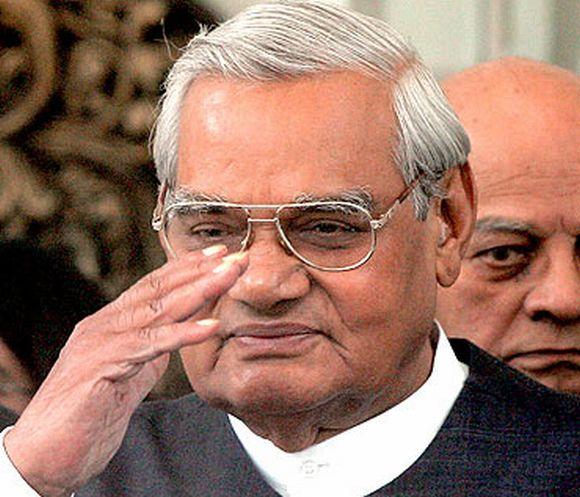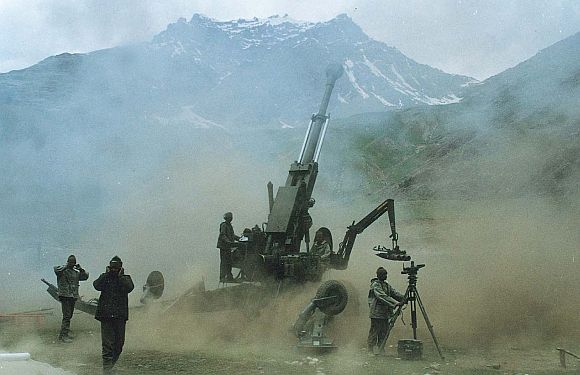
"Operation Parakram" in 2001 was the "most punishing mistake" for the armed forces, former Navy chief Admiral Sushil Kumar said on Friday, maintaining the government then lacked any political aim or objective for deploying the army along the Indo-Pakistan border.
"There was no aim or military objective for the Operation Parakram... I don't mind admitting that Operation Parakram was the most punishing mistake for the Indian Armed Forces," Kumar said in New Delhi, addressing a seminar on 'Limited wars in South Asia-Against a nuclear background'.
Operation Parakram, the 11-month-long border stand-off, took place soon after the December 13, 2001 terror attack on Parliament.
....

"When the Parliament strike took place, in the (CCS) board room it was super charged atmosphere, as you are aware in the CCS board room, the three service chiefs sit opposite the Cabinet. In the end, Prime Minister (Atal Bihari) Vajpayee turned to me and said aap khush nahi lag rahe hain Admiral Sahab (You don't seem to be happy).
"I said I beg your pardon, Sir, can you give us what is your political aim? We need to derive a military aim from it. That is the whole principle of war. What is the aim, you need an aim and military objective. Operation Parakram was the most punishing mistake for the Indian Armed Forces...," he said.
Kumar also said that China and not Pakistan is the "biggest problem" for India.
"China is our biggest problem, not Pakistan. But the whole target seems to be hovering around Pakistan... God forbid, if we have to try Op Parakram against the Chinese," he said.
Click on NEXT to go further...

Comparing Indian and Chinese navies, Kumar said, "Chinese Navy gets the lion's share of their defence budget. People here sometimes forget that we even exist. 45 per cent of the Chinese defence budget is allotted to its Navy but we get only 14 per cent."
Holding that little attention was paid to the maritime dimension during the Kargil conflict, he said, "There was no focus on the maritime dimension and the focus was only on the LoC. I had said that Kargil will once happen in the sea and no body believed me. Eight years later 26/11 happened, but we have never learnt from our mistakes."
Referring to nuclear versus conventional war fighting capabilities, Kumar said nuclear deterrence should not be considered as the replacement for conventional war fighting capabilities of the country.
"The problem is that the nuclear mindset we have is a false sense of security. Nuclear deterrence is required but it does not replace conventional deterrence. Conventional deterrence is the real deterrence, it gives you a credible response capability," he said.